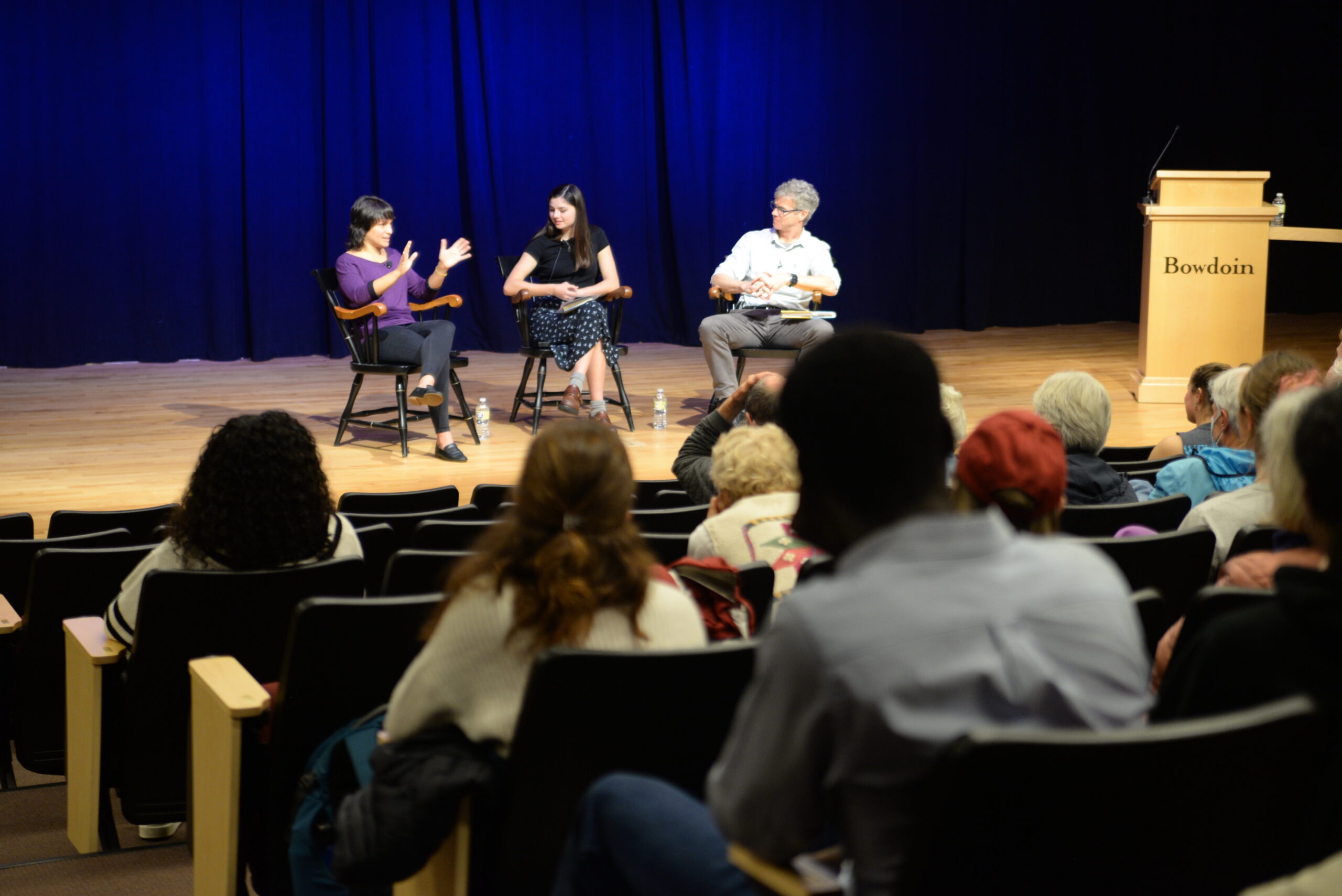Mónica Guzmán ’05 talks on effective communication across political divides
October 21, 2022
 Cora Dow
Cora DowOn Monday, author, journalist and conversational bridge-builder Mónica Guzmán ’05 delivered a talk at Kresge Auditorium about her best-selling book “I Never Thought About It That Way: How to Have Fearlessly Curious Conversations in Dangerously Divided Times.” The “Fireside Chat” was hosted by the Joseph McKeen Center for the Common Good and facilitated by Alondra Romero ’24 and Samuel S. Butcher Professor in the Natural Sciences Barry Logan. The event was followed by a reception at MacMillan House.
Guzmán, a self-proclaimed “proud liberal daughter of two conservative parents,” is the Senior Fellow for Public Practice at Braver Angels, a nonprofit whose goal is to mend the political divide between conservatives and progressives. She is also the host of the Crosscut interview series, Northwest Newsmakers. Guzmán released her book in 2022 as a means of providing effective skills and strategies to bridge the communication gap between estranged political parties.
“The book I wrote has ended up reaching everyone from liberal to conservative and young and old,” Guzmán said in an interview. “But the shared thing is an acknowledgment of the pain and the dysfunction that has struck us because we [struggle] to communicate what we believe to each other effectively.”
During her visit, Guzmán sat in on a class taught by Associate Professor of Economics Daniel Stone, where he asked students if they believed that the Bowdoin student body censors itself and prompted them to consider the extent of this censorship. Stone’s students largely agreed that this censorship is present but isn’t significant.
“Even though that wasn’t a very representative or large sample at all—it was still encouraging to think, you know, maybe Bowdoin students are less worried about it, maybe they are able to lean in,” Guzmán said.
Guzmán has invested a lot of time studying the significance of political divides on college campuses. She reflected on her visits at academic institutions where this polarization is a heavy concern for students.
“I was also looking through the Bowdoin Orient, my old haunt, and noticed that 4 percent [of first-year students]—I assume—self-reported that they were conservative,” Guzmán said. “So that opens questions about, how comfortable do people feel talking about some things? And are they worried about using the right or wrong word? Are they worried about their fellow students shunning them in certain ways?”
Visiting Bowdoin prompted Guzmán to consider the extent to which being a Bowdoin student influenced her community-building work and what she would have done differently during her time at the College. She concluded that she wishes she allotted more time to learn from her fellow peers.
Guzmán’s piece of advice for students—and one emphasized in her talk—is recognizing the accessible and enormous learning opportunity right in front of them: other people.
“Coming to Bowdoin, I thought about all the ways I didn’t appreciate Bowdoin when I was there,” Guzmán said. “I was very busy. I was really focused on my own thing. And it’s so remarkable the richness you have around you.… There are these enormous opportunities to interact and explore and discover in unpredictable ways where your universes collide and where they inform each other. And if I could go back, I would make more space for that.”
Additionally, Guzmán recognizes the importance of storytelling and candidness in challenging conversation. She holds the opinion that reason alone is ineffective if people want to find common ground.
Guzmán hopes that Monday’s event inspires attendees to make an active effort to converse with those with different ideologies compassionately and from a learner’s perspective.
“I hope that students are inspired and maybe equipped to ask one more question in a tense conversation before they jump in with their opinion or to listen longer before they interrupt or to ask people to give an example of when something happened to them or how a certain opinion is informed by their experience,” Guzmán said.

Comments
Before submitting a comment, please review our comment policy. Some key points from the policy: